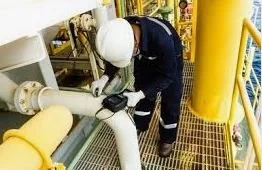Leak Detection
Leak Detection System Testing
Leak Detection System Testing is a critical service designed to evaluate the accuracy, responsiveness, and integrity of gas or fluid leak detection systems. At Precision Gas Testing & Inspection, we ensure your leak detection infrastructure is functioning properly — before a real leak puts people, property, or compliance at risk.
✅ What Is Leak Detection System Testing?
This service involves simulating real-world leak conditions to verify that installed detection equipment (e.g., sensors, alarms, control panels) accurately detects leaks, triggers alarms, and communicates with safety systems as intended.
We test for:
Sensor responsiveness and sensitivity
System calibration and drift
Signal transmission (wired or wireless)
Alarm activation and fault detection
Communication with building management or safety systems
Common Systems We Test
Gas Leak Detection Systems (Hydrogen, Methane, CO₂, Oxygen, SF₆, etc.)
Medical Gas Monitoring Systems
Compressed Air
Cleanroom and Laboratory Safety Systems
Storage Tank Leak Detection Units
Semiconductor or High-Purity Gas Systems
Our Testing Approach
Simulation of actual leak scenarios using trace gas or controlled release
Sensor and alarm verification at different setpoints
Visual and audible alert testing
Review of event logging and system feedback
Inspection of backup systems and power supply
Documentation of test results and certification report
Why It Matters
Ensures early detection of hazardous leaks
Prevents costly gas loss, system shutdowns, or environmental exposure
Maintains compliance with safety standards (PSSR 2000, ISO, BCGA, etc.)
Protects personnel, equipment, and sensitive processes
Verifies proper installation and ongoing functionality
Deliverables
Full inspection and performance test report
Pass/fail documentation for each device
Recommendations for corrective actions (if needed)
Certification for compliance or audit readiness.

